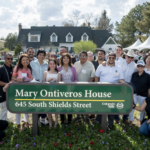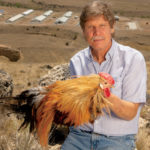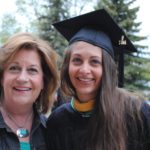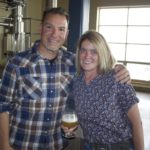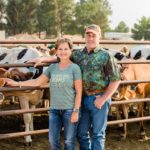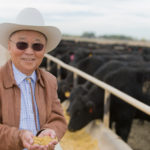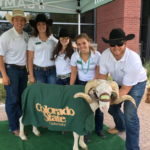When Anica Wong (B.A., ’08) arrived at Colorado State University in 2005, she planned to study veterinary medicine but changed her major to technical journalism. That proved to be a career decision that would eventually give her the skills to advocate for local farming.
After graduation, Anica earned a master’s degree in journalism from Stanford University and planned to pursue sports marketing but instead worked for a Los Angeles-based company syndicating newspaper content. She also got involved with the city’s Ram Network and participated in beach cleanups and other volunteer opportunities with fellow CSU alumni.
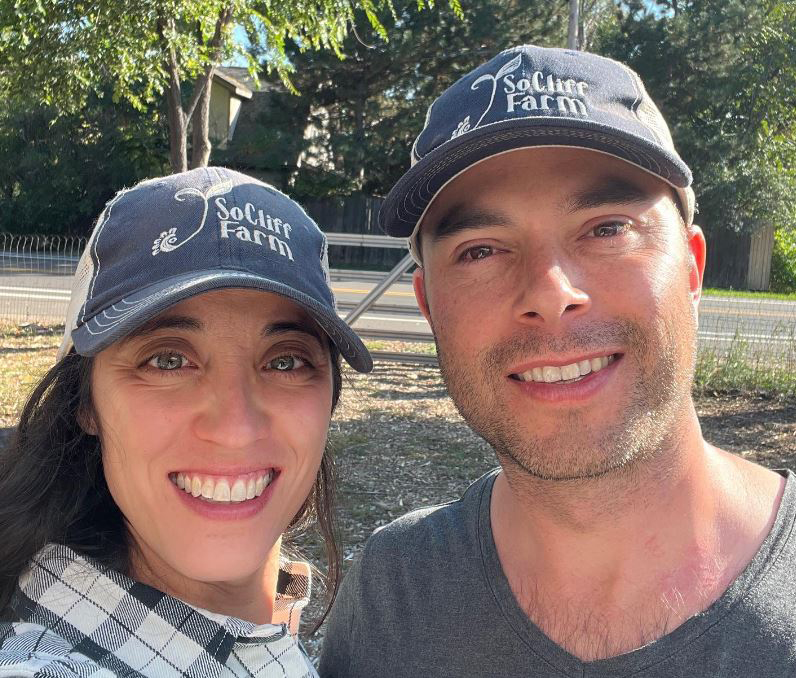
In 2013, she returned to Colorado and devoted a year of service to AmeriCorps as an early childhood literacy tutor before accepting a communications position with the Aurora Public Schools Foundation. In 2015, Anica began her current position as the director of constituent communications for the Colorado School of Mines Foundation.
The previous year, she met Ivan Soto, a firefighter and paramedic in Lakewood, Colo., a city known for its agricultural heritage. He had purchased a home there in 2011 that had been empty for eight years but sat on 1.5 acres. He thought he might farm it one day but much-needed renovations to the home came first.
“Ivan was the visionary behind SoCliff Farm,” said Anica. The farm’s name is a combination of Ivan’s last name and his mother’s maiden, Clifton.
Neither Anica nor Ivan had backgrounds in agriculture, but both had extended family in ranching in Colorado and New Mexico. Though lacking farming experience, they shared a desire to enrich their community with food. “We went into farming with pretty much zero knowledge about what we were doing and not a day goes by that we don’t learn something new.”
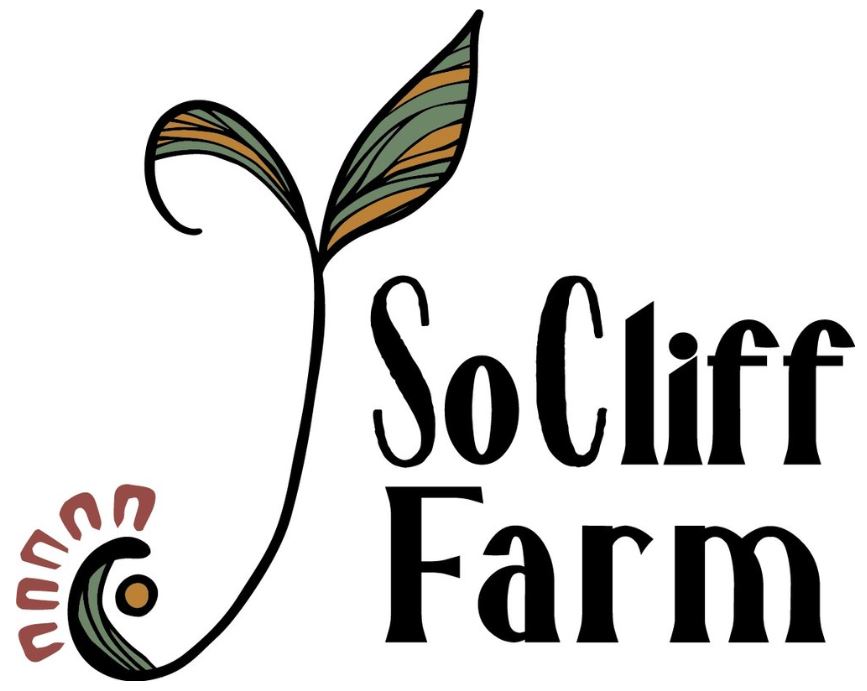 To help them establish their urban farm, Anica and Ivan began working with GoFarm, a nonprofit organization based in Golden that trains and supports local farmers. According to Anica, becoming an “incubator farm” in the program was invaluable because there are a lot of infrastructure and upfront costs associated with starting a farm. The two-year program also provided mentors and access to lots of resources.
To help them establish their urban farm, Anica and Ivan began working with GoFarm, a nonprofit organization based in Golden that trains and supports local farmers. According to Anica, becoming an “incubator farm” in the program was invaluable because there are a lot of infrastructure and upfront costs associated with starting a farm. The two-year program also provided mentors and access to lots of resources.
They planted their first crop in the spring of 2020 as the COVID-19 pandemic was gripping the world. Though it seemed like a bad time to launch their new venture, it gave them hope for the future.
As new part-time farmers working full-time jobs, they choose to host a weekend farmstand at their property during the season rather than participate in local farmers markets. Each week, Anica would email their burgeoning newsletter list to solicit online orders for the vegetables that were ready to harvest. She and Ivan would then pick and pack each order and have it ready for customers on the upcoming Saturday. The process worked well for everyone, so they have stayed with it and their newsletter list now includes more than 800 subscribers.
The half-acre SoCliff Farm grows staple vegetables such as lettuce, tomatoes, carrots, and radishes. They have six honey-producing beehives on the property and a dozen chickens. Anica preserves pickled cucumbers and jalapeños and makes applesauce from two apple trees on the property.
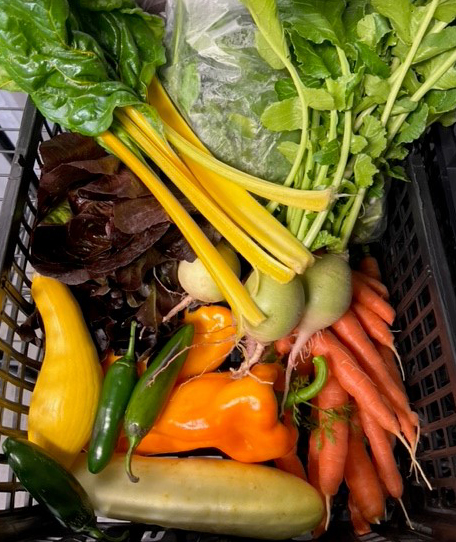
During the past two years, they have partnered with other area farmers to offer fresh-cut flower arrangements, homemade bread, and gourmet mushrooms through their farmstand, which has become a gathering place for their neighbors and friends.
“We have some customers who have come to the farmstand every single weekend we’ve been open for the past three years,” said Anica. “We prefer to have people visit the farm and take a tour to see where their veggies come from and help them understand what it takes.”
One of the things it takes is good soil, which increases the nutrients in vegetables. Anica and Ivan amend the soil with organic compost and tree leaves in the fall, and plant cover crops that add nutrients back into the soil while preventing erosion during the fall and winter months. Last fall, their neighbors delivered about 800 bags of leaves to the farm that otherwise would have gone to the landfill.
Ivan and Anica’s commitment to high-quality produce was recently recognized as Certified Naturally Grown, which they are very proud of. “Our veggies are more expensive because they are sustainably grown,” Anica said, “but our customers and community members believe in that and are willing to pay the premium.”
Giving as many people as possible access to local produce is an important component to SoCliff Farm. At the farmstand, they have a sliding price scale to help people who need assistance, and last year they participated in the Farm to WIC (Women, Infants & Children) program, which makes healthy, nutritious food available to local families.
The life Ivan and Anica share is one they built from the ground up and it has given her opportunities to use the communication skills she began developing at CSU in unexpected ways. “Although I’m learning how to maximize crop production in the field, I already know how to maximize with a good website, good social media, and good email content,” said Anica. “Bringing both of those things together feels like a good conglomeration of it all.”











